跨文化交际课件Lesson 3 - Culture, Emic vs. Etic
- 格式:ppt
- 大小:1.78 MB
- 文档页数:45
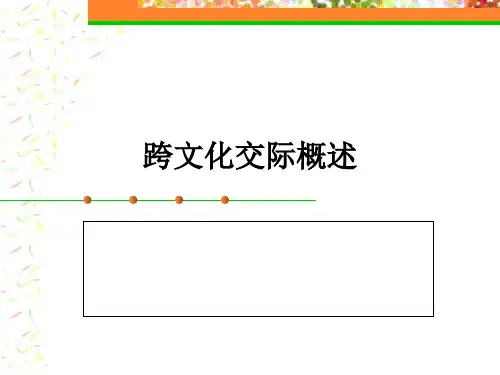
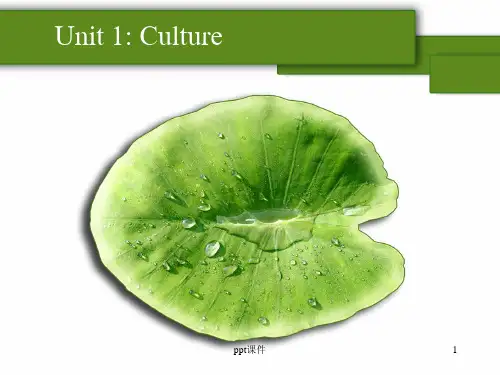
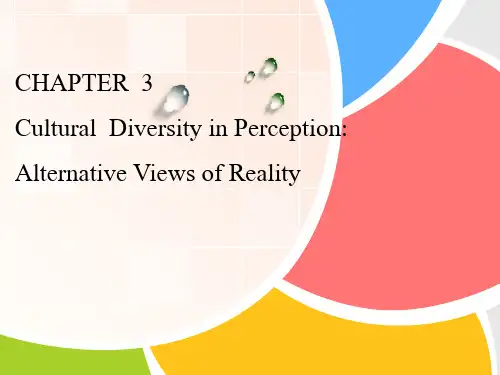
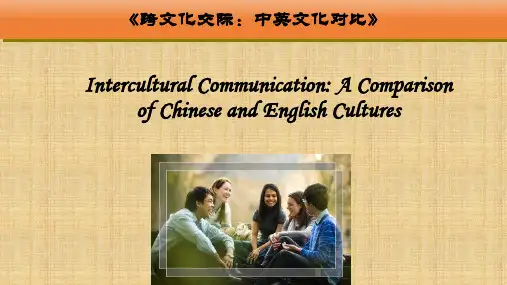

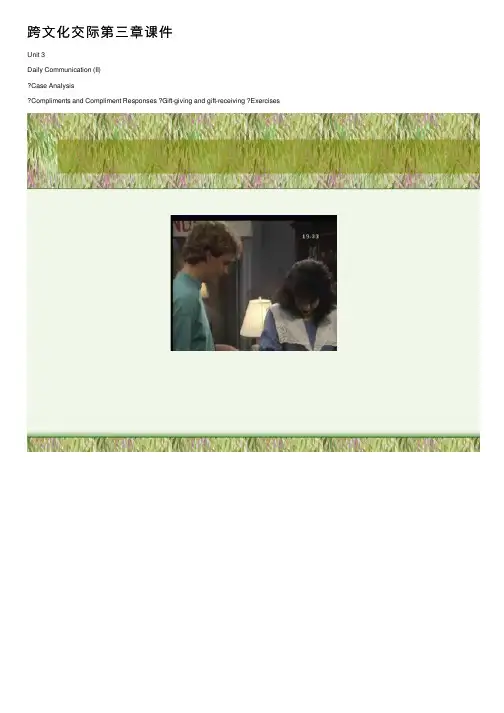
跨⽂化交际第三章课件Unit 3Daily Communication (II)Case AnalysisCompliments and Compliment Responses Gift-giving and gift-receiving ExercisesCase AnalysisAn Invitation to DinnerThe Cancellation of the Dinner Party Why should they do like this The Embarrassment Caused by “No Etiquette”Compliments and Compliment ResponsesMain point: Chinese modestySocial functions of compliments Differences between Chinese compliments and English complimentsCultural assumptionExpressions for gratitude in English and ChineseCommon expressions for apology inChinese ModestyOh, it’s an ordinary dress I bought in China.Should I blush, or should I tell him you don’t really mean it Growing flowers is my hobby, but I’m not much good at it.I really know so little about the subject....Social functions of complimentsCreating or reinforcing solidarity greeting peopleexpressing thankscongratulationencouraging peoplesoftening criticismstarting a conversationgetting over embarrassmentDifferences between Chinese compliments and English complimentsThe Semantic formulaThe Syntactic FormulaCommon responses formula in E-and C-complimentsThe Semantic FormulaEnglish:This was a great meal.Bill, you look so nice today.I love your dresses.About 80% adj. 16%verbs Chinese:你的房间不错。
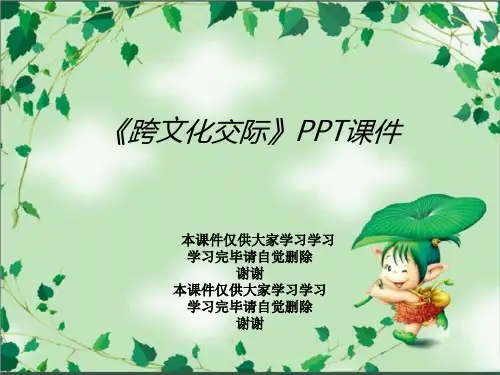
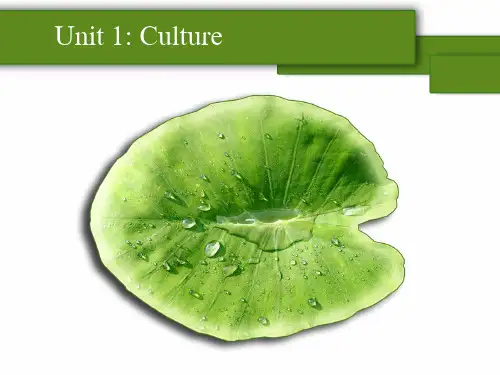
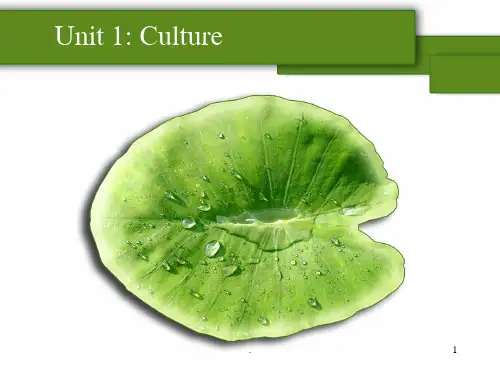
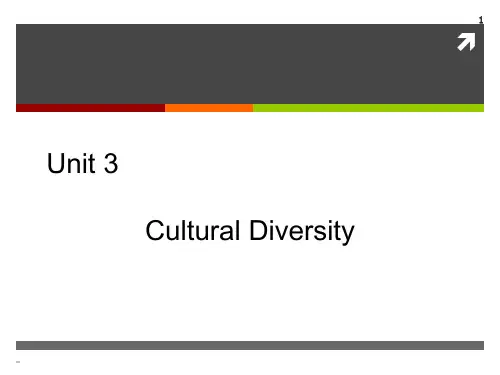

Unit 3 Cultural Differences in Daily Conversations任课教师:罗凌志联系方式:dabianzi@Introduction1. Importance of this studyA lot of cultural phenomena are involved in daily conversation2. Topics of the studysome aspects of everyday conversations as well as the cultural characteristics underlying them Section 12: Ways of AddressIn recent years, the trend of many English-speaking people has been to address others by using the first name Tom, Michael, Linda, Jane, etc. Rather than calling the person Mr. Summers, Mrs. Howard or Miss Jones.“Mr.”、“Mrs.”、“Miss”、“Sir”、“Madam”“先生”、“女士”、“小姐” , “同志”,“师傅”Forms of address1. kinship address亲属称谓语2. address in social intercourse社交称谓语Case Study:A. IF Jane Smith gets married to Peter Austin, how do you address the lady?B. If your foreign teacher is called John Smith, how would you address him?Mr. Smith, Dr. Smith, Professor Smith, John, Sir, John SmithC. An unmarried lady is called Mary Brown. How would you address her face to face?a. Miss Mary;b. Miss Brown;c. Miss Mary Brown;d. Mary;e. Mary Brown1.1 Kinship addressA. formal: father, grandfather, grandmotherinformal: daddy, grandpa ,grandma/grannyB. First name: Tom, Bill13 words in English: father, mother, son, daughter, brother, sister, uncle, aunt, nephew, niece, cousin, husband, wifeModifiers: great, grand, step, half, first, second, in-law1.2 address in social intercourse社交称谓语It is a representation of authority and equality in society.Authority: superiority, age, career differences, education degreeEquality: share of experiences, social features-religion, gender, age, birthplace, ethnic, career, interest1.2.1 the use of first namesEnglish: quite common to address others by using the first names, esp. among classmates, peers or colleaguesE.g. Mavis Ms. LuoChinese: used in addressing a person younger in age or lower in rank刘宏伟,徐凯琪,谢梓文……1.1.2 The use of titleChinese: widely use a person’s title, office, or occupation as vocatives.E.g. 先生,小姐,处长,局长,工程师,老师,大夫, 总理,总裁,经理,同志,师傅English:very few can be used to address unfamiliar people, career men.1. Mr.,Mrs.,Miss,MsE.g Brian SmithMr. Smith; Mr. Brian Smith(确定身份情况下),Mr. Chairman/ Madam Chairman主席夫人阁下2. doctor,professor,E.g. Dr. Brown, Professor SmithMaster, Bachelor, Lecturer, Assistant Professor + Surname? No!3. judge,lawyer, Priest, Physician, Dentist4. Prime Minister,president,mayor,governor,5. Captain, Colonel(上校),General, Lieutenant(陆军中尉,海军上尉)1.1.3 respectful vocative敬称词单独使用English:Sir, Miss, Madam/Ma’am1. Sir and Miss (elementary school)2. male and female customers: Sir or Madam in stores, banks, c lubs, buses, police stations…Standard appellativeConceptterms which can be used alone as vocatives,such as the terms of family relationships:mum,dad,uncle,granny,etc;and terms used to address strangers:Miss,sir,etc.Cross-cultural differencesa. all terms of family relationships can be used as standard appellatives in Chinese, only a few can be used in English.B. when addressing strangers, Chinese can resort to many terms. In English only a smaller set of terms can be used.One can infer from the preceding that the Chinese custom of addressing members of one’s family relatives or close neighbors as 二哥,三姐,四婶,周大伯should not be carried over into English. Another common Chinese form of address is the use of a person’s title, office, or occupation, such as 黄局长,林经理,李校长。